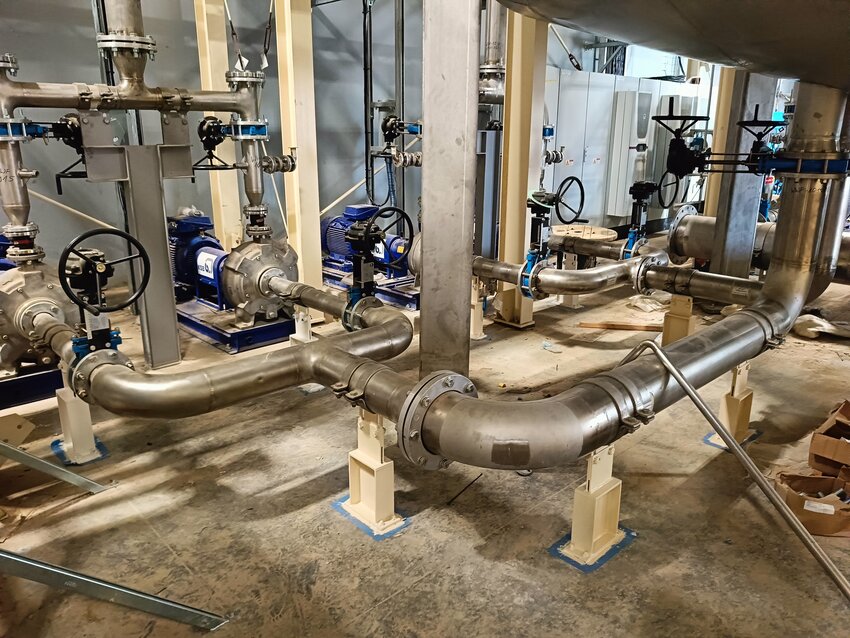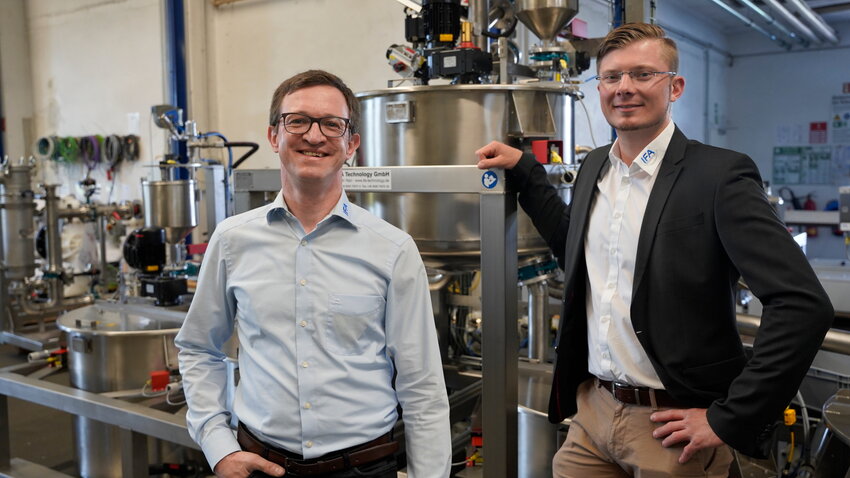In chemical treatment, water is purified by the targeted use of chemicals. This method is necessary for water contaminated with poorly soluble substances such as oils, greases, resins or acids. The aim is to bind, neutralize or remove these substances.
Chemicals efficiently remove contaminants that arise during the production process. Each system is specifically tailored to the respective production process to ensure maximum efficiency. The use of special chemicals protects against corrosion in pipes and machines. IFA Technology uses modern programmable logic controllers (PLC) to monitor and adjust the chemical treatment process.
Flocculation systems are frequently used for chemical treatment. These systems use special chemicals to bind unwanted substances in the water. This enables the treated water to be safely returned to the production process, optimizing water quality and supporting sustainable production.







